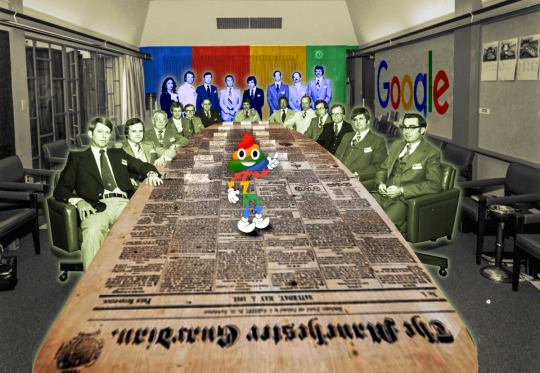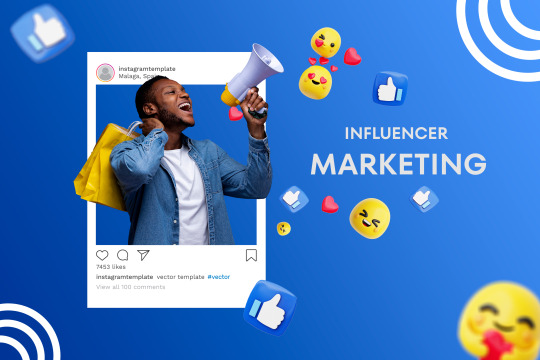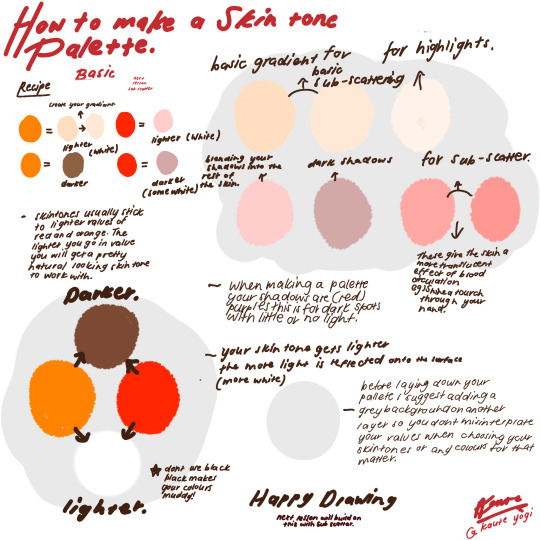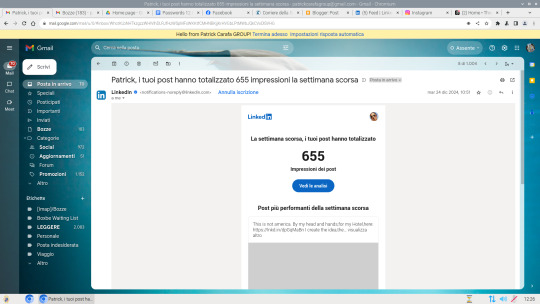#Digital Advertising market
Explore tagged Tumblr posts
Text
SEO Vs PPC: Which is Best for your business.?

Both SEO and PPC aim to drive traffic to a website and generate conversaions, but which should you prioritise in your marketing strategy?
SEO and PPC are two importent marketing models. SEO and PPC are both strategies aimed at driving traffic to websites, each with its strengths and weaknesses.
want to know how the differ? and which is best for your business?
contact us: [email protected]
#Digital marketing#Digital marketing in Dubai#Expert Digital marketing#Top Digital marketing#Best Digital marketing#Digital marketing Agency#Digital marketing Services in Dubai#leading digital marketing agency in Dubai#Digital Advertising market#SEO#SEO marketing in Dubai#SEO in Dubai#Best SEO company#Top SEO company#SEO Services#Leading SEO company#Expert SEO company#Leading SEO company in Dubai#Expert SEO company in Dubai#Professional SEO company#PPC#PPC in Dubai#PPC company Dubai#PPC Services Dubai#Leading PPC company#Expert PPC company#Professional PPC company#Best PPC company Dubai#Top PPC company in Dubai#Paid search marketing company Dubai
0 notes
Text
instagram
💔💔Urgent appeal from a mother🙏🙏
Hello dear friends! ❤🤍🖤💚
🍉I am doaa Ayyad, a Palestinian from the besieged and destroyed Gaza 😭😭,amothers of tow girls Malak &Masa, Malak suffers from Down syndrome and has a heart problem and needs urgent medical intervention due to a birth defect.
We are suffering😭😭 for 405 difficult days from an aggressive war.
Our lives are harsh because we lack all the basic necessities of life. Everything has become scarce and unattainable. There is no food, no water, no medicine.
So, I ask you to help me keep my family safe and alive, especially after we had lost all our sources of livelihood.Please do not leave my family to struggle and suffer these difficult days alone. You can support my campaign by donating whatever you can or by sharing my posts to reach others who can help us survive the war to safety and peace. You are helping the lives of many people with your small contribution. Every donation makes a difference in our very difficult lives. But this is a legitimate campaign and has been checked by 90-ghost and gaza-evacuations_fund
https://gofund.me/79e8f40a
@godmybackhurts @90-ghost @creating-something-stuff @kryaaas @staff @creating-something-stuff @gazavetters @gaza-evacuation-funds @gaza @honeygordo @heydreamchild @quotemadness @elfi-knell @equipebrasil @usoppsfattit @dreamertrilogys @depressed-changeling @x0pluto @breadedsinner @bearrxx
#digital art#donate if you can#free gaza#donations#art#my art#help gaza#marketing#nail art#palestine donation#download#advertising#help this family#help them reach their goal#help spread the word#save palestine#israel palestine conflict#children#help these kind people#horizon zero dawn#ffxiv dawntrail#Palestine#Instagram
744 notes
·
View notes
Text
UK publishers suing Google for $17.4b over rigged ad markets

THIS WEEKEND (June 7–9), I'm in AMHERST, NEW YORK to keynote the 25th Annual Media Ecology Association Convention and accept the Neil Postman Award for Career Achievement in Public Intellectual Activity.

Look, no one wants to kick Big Tech to the curb more than I do, but, also: it's good that Google indexes the news so people can find it, and it's good that Facebook provides forums where people can talk about the news.
It's not news if you can't find it. It's not news if you can't talk about it. We don't call information you can't find or discuss "news" – we call it "secrets."
And yet, the most popular – and widely deployed – anti-Big Tech tactic promulgated by the news industry and supported by many of my fellow trustbusters is premised on making Big Tech pay to index the news and/or provide a forum to discuss news articles. These "news bargaining codes" (or, less charitably, "link taxes") have been mooted or introduced in the EU, France, Spain, Australia, and Canada. There are proposals to introduce these in the US (through the JCPA) and in California (the CJPA).
These US bills are probably dead on arrival, for reasons that can be easily understood by the Canadian experience with them. After Canada introduced Bill C-18 – its own news bargaining code – Meta did exactly what it had done in many other places where this had been tried: blocked all news from Facebook, Instagram, Threads, and other Meta properties.
This has been a disaster for the news industry and a disaster for Canadians' ability to discuss the news. Oh, it makes Meta look like assholes, too, but Meta is the poster child for "too big to care" and is palpably indifferent to the PR costs of this boycott.
Frustrated lawmakers are now trying to figure out what to do next. The most common proposal is to order Meta to carry the news. Canadians should be worried about this, because the next government will almost certainly be helmed by the far-right conspiratorialist culture warrior Pierre Poilievre, who will doubtless use this power to order Facebook to platform "news sites" to give prominence to Canada's rotten bushel of crypto-fascist (and openly fascist) "news" sites.
Americans should worry about this too. A Donald Trump 2028 presidency combined with a must-carry rule for news would see Trump's cabinet appointees deciding what is (and is not) news, and ordering large social media platforms to cram the Daily Caller (or, you know, the Daily Stormer) into our eyeballs.
But there's another, more fundamental reason that must-carry is incompatible with the American system: the First Amendment. The government simply can't issue a blanket legal order to platforms requiring them to carry certain speech. They can strongly encourage it. A court can order limited compelled speech (say, a retraction following a finding of libel). Under emergency conditions, the government might be able to compel the transmission of urgent messages. But there's just no way the First Amendment can be squared with a blanket, ongoing order issued by the government to communications platforms requiring them to reproduce, and make available, everything published by some collection of their favorite news outlets.
This might also be illegal in Canada, but it's harder to be definitive. The Canadian Charter of Rights and Freedoms was enshrined in 1982, and Canada's Supreme Court is still figuring out what it means. Section Two of the Charter enshrines a free expression right, but it's worded in less absolute terms than the First Amendment, and that's deliberate. During the debate over the wording of the Charter, Canadian scholars and policymakers specifically invoked problems with First Amendment absolutism and tried to chart a middle course between strong protections for free expression and problems with the First Amendment's brook-no-exceptions language.
So maybe Canada's Supreme Court would find a must-carry order to Meta to be a violation of the Charter, but it's hard to say for sure. The Charter is both young and ambiguous, so it's harder to be definitive about what it would say about this hypothetical. But when it comes to the US and the First Amendment, that's categorically untrue. The US Constitution is centuries older than the Canadian Charter, and the First Amendment is extremely definitive, and there are reams of precedent interpreting it. The JPCA and CJPA are totally incompatible with the US Constitution. Passing them isn't as silly as passing a law declaring that Pi equals three or that water isn't wet, but it's in the neighborhood.
But all that isn't to say that the news industry shouldn't be attacking Big Tech. Far from it. Big Tech compulsively steals from the news!
But what Big Tech steals from the news isn't content.
It's money.
Big Tech steals money from the news. Take social media: when a news outlet invests in building a subscriber base on a social media platform, they're giving that platform a stick to beat them with. The more subscribers you have on social media, the more you'll be willing to pay to reach those subscribers, and the more incentive there is for the platform to suppress the reach of your articles unless you pay to "boost" your content.
This is plainly fraudulent. When I sign up to follow a news outlet on a social media site, I'm telling the platform to show me the things the news outlet publishes. When the platform uses that subscription as the basis for a blackmail plot, holding my desire to read the news to ransom, they are breaking their implied promise to me to show me the things I asked to see:
https://www.eff.org/deeplinks/2023/06/save-news-we-need-end-end-web
This is stealing money from the news. It's the definition of an "unfair method of competition." Article 5 of the Federal Trade Commission Act gives the FTC the power to step in and ban this practice, and they should:
https://pluralistic.net/2023/01/10/the-courage-to-govern/#whos-in-charge
Big Tech also steals money from the news via the App Tax: the 30% rake that the mobile OS duopoly (Apple/Google) requires for every in-app purchase (Apple/Google also have policies that punish app vendors who take you to the web to make payments without paying the App Tax). 30% out of every subscriber dollar sent via an app is highway robbery! By contrast, the hyperconcentrated, price-gouging payment processing cartel charges 2-5% – about a tenth of the Big Tech tax. This is Big Tech stealing money from the news:
https://www.eff.org/deeplinks/2023/06/save-news-we-must-open-app-stores
Finally, Big Tech steals money by monopolizing the ad market. The Google-Meta ad duopoly takes 51% out of every ad-dollar spent. The historic share going to advertising "intermediaries" is 10-15%. In other words, Google/Meta cornered the market on ads and then tripled the bite they were taking out of publishers' advertising revenue. They even have an illegal, collusive arrangement to rig this market, codenamed "Jedi Blue":
https://en.wikipedia.org/wiki/Jedi_Blue
There's two ways to unrig the ad market, and we should do both of them.
First, we should trustbust both Google and Meta and force them to sell off parts of their advertising businesses. Currently, both Google and Meta operate a "full stack" of ad services. They have an arm that represents advertisers buying space for ads. Another arm represents publishers selling space to advertisers. A third arm operates the marketplace where these sales take place. All three arms collect fees. On top of that: Google/Meta are both publishers and advertisers, competing with their own customers!
This is as if you were in court for a divorce and you discovered that the same lawyer representing your soon-to-be ex was also representing you…while serving as the judge…and trying to match with you both on Tinder. It shouldn't surprise you if at the end of that divorce, the court ruled that the family home should go to the lawyer.
So yeah, we should break up ad-tech:
https://www.eff.org/deeplinks/2023/05/save-news-we-must-shatter-ad-tech
Also: we should ban surveillance advertising. Surveillance advertising gives ad-tech companies a permanent advantage over publishers. Ad-tech will always know more about readers' behavior than publishers do, because Big Tech engages in continuous, highly invasive surveillance of every internet user in the world. Surveillance ads perform a little better than "content-based ads" (ads sold based on the content of a web-page, not the behavior of the person looking at the page), but publishers will always know more about their content than ad-tech does. That means that even if content-based ads command a slightly lower price than surveillance ads, a much larger share of that payment will go to publishers:
https://www.eff.org/deeplinks/2023/05/save-news-we-must-ban-surveillance-advertising
Banning surveillance advertising isn't just good business, it's good politics. The potential coalition for banning surveillance ads is everyone who is harmed by commercial surveillance. That's a coalition that's orders of magnitude larger than the pool of people who merely care about fairness in the ad/news industries. It's everyone who's worried about their grandparents being brainwashed on Facebook, or their teens becoming anorexic because of Instagram. It includes people angry about deepfake porn, and people angry about Black Lives Matter protesters' identities being handed to the cops by Google (see also: Jan 6 insurrectionists).
It also includes everyone who discovers that they're paying higher prices because a vendor is using surveillance data to determine how much they'll pay – like when McDonald's raises the price of your "meal deal" on your payday, based on the assumption that you will spend more when your bank account is at its highest monthly level:
https://pluralistic.net/2024/06/05/your-price-named/#privacy-first-again
Attacking Big Tech for stealing money is much smarter than pretending that the problem is Big Tech stealing content. We want Big Tech to make the news easy to find and discuss. We just want them to stop pocketing 30 cents out of every subscriber dollar and 51 cents out of ever ad dollar, and ransoming subscribers' social media subscriptions to extort publishers.
And there's amazing news on this front: a consortium of UK web-publishers called Ad Tech Collective Action has just triumphed in a high-stakes proceeding, and can now go ahead with a suit against Google, seeking damages of GBP13.6b ($17.4b) for the rigged ad-tech market:
https://www.reuters.com/technology/17-bln-uk-adtech-lawsuit-against-google-can-go-ahead-tribunal-rules-2024-06-05/
The ruling, from the Competition Appeal Tribunal, paves the way for a frontal assault on the thing Big Tech actually steals from publishers: money, not content.
This is exactly what publishing should be doing. Targeting the method by which tech steals from the news is a benefit to all kinds of news organizations, including the independent, journalist-owned publishers that are doing the best news work today. These independents do not have the same interests as corporate news, which is dominated by hedge funds and private equity raiders, who have spent decades buying up and hollowing out news outlets, and blaming the resulting decline in readership and profits on Craiglist.
You can read more about Big Finance's raid on the news in Margot Susca's Hedged: How Private Investment Funds Helped Destroy American Newspapers and Undermine Democracy:
https://www.press.uillinois.edu/books/?id=p087561
You can also watch/listen to Adam Conover's excellent interview with Susca:
https://www.youtube.com/watch?v=N21YfWy0-bA
Frankly, the looters and billionaires who bought and gutted our great papers are no more interested in the health of the news industry or democracy than Big Tech is. We should care about the news and the workers who produce the news, not the profits of the hedge-funds that own the news. An assault on Big Tech's monetary theft levels the playing field, making it easier for news workers and indies to compete directly with financialized news outlets and billionaire playthings, by letting indies keep more of every ad-dollar and more of every subscriber-dollar – and to reach their subscribers without paying ransom to social media.
Ending monetary theft – rather than licensing news search and discussion – is something that workers are far more interested in than their bosses. Any time you see workers and their bosses on the same side as a fight against Big Tech, you should look more closely. Bosses are not on their workers' side. If bosses get more money out of Big Tech, they will not share those gains with workers unless someone forces them to.
That's where antitrust comes in. Antitrust is designed to strike at power, and enforcers have broad authority to blunt the power of corporate juggernauts. Remember Article 5 of the FTC Act, the one that lets the FTC block "unfair methods of competition?" FTC Chair Lina Khan has proposed using it to regulate training AI, specifically to craft rules that address the labor and privacy issues with AI:
https://www.youtube.com/watch?v=3mh8Z5pcJpg
This is an approach that can put creative workers where they belong, in a coalition with other workers, rather than with their bosses. The copyright approach to curbing AI training is beloved of the same media companies that are eagerly screwing their workers. If we manage to make copyright – a transferrable right that a worker can be forced to turn over their employer – into the system that regulates AI training, it won't stop training. It'll just trigger every entertainment company changing their boilerplate contract so that creative workers have to sign over their AI rights or be shown the door:
https://pluralistic.net/2024/05/13/spooky-action-at-a-close-up/#invisible-hand
Then those same entertainment and news companies will train AI models and try to fire most of their workers and slash the pay of the remainder using those models' output. Using copyright to regulate AI training makes changes to who gets to benefit from workers' misery, shifting some of our stolen wages from AI companies to entertainment companies. But it won't stop them from ruining our lives.
By contrast, focusing on actual labor rights – say, through an FTCA 5 rulemaking – has the potential to protect those rights from all parties, and puts us on the same side as call-center workers, train drivers, radiologists and anyone else whose wages are being targeted by AI companies and their customers.
Policy fights are a recurring monkey's paw nightmare in which we try to do something to fight corruption and bullying, only to be outmaneuvered by corrupt bullies. Making good policy is no guarantee of a good outcome, but it sure helps – and good policy starts with targeting the thing you want to fix. If we're worried that news is being financially starved by Big Tech, then we should go after the money, not the links.

If you'd like an essay-formatted version of this post to read or share, here's a link to it on pluralistic.net, my surveillance-free, ad-free, tracker-free blog:
https://pluralistic.net/2024/06/06/stealing-money-not-content/#content-free
#pluralistic#competition#advertising#surveillance advertising#saving the news from big tech#link taxes#trustbusting#competition and markets authority#uk#ukpoli#Ad Tech Collective Action#digital markets unit#Competition Appeal Tribunal
585 notes
·
View notes
Text
Write this down so we're all on the same page here. There is nothing, no manner of content whatsoever, that will be compelling or in any way rewarding enough to entice me to watch through an unskippable ad.
#ads#marketing#humor#to all marketers#youtube#netflix#advertising#digital marketer#2 cents#quote me on that#prime video#amazon
521 notes
·
View notes
Text
BUY NOW/BILI NA🛒
LINK IN MY BIO
#art#aesthetic#animals#cute#humor#love#memes#gif#nature#photography#entrepreneur#business#marketing#profit#market#promoting#advertising#trend#foryourpage#fanart#funny#digital art#artists on tumblr#mine#illustration#haha#foryoupage#foryou#viralpost#promote
21 notes
·
View notes
Text
What Exactly Social Media Is?
Social media refers to online platforms and tools that allow people to create, share, and engage with content, fostering global communication and interaction. From connecting with friends to building brands, social media plays a vital role in personal, professional, and cultural spheres.

Key Features of Popular Social Media Platforms
1. Facebook
Primary Use: Social networking and community building.
Key Features:
Groups and Events for organizing and collaborating.
Marketplace for buying and selling.
Live streaming and Stories for real-time updates.
2. Instagram
Primary Use: Visual content sharing.
Key Features:
Photo and video sharing with filters and effects.
Reels for short, engaging videos.
Stories and Highlights for ephemeral content.
3. Twitter
Primary Use: Real-time updates and microblogging.
Key Features:
Short tweets (posts) with multimedia.
Trending topics and hashtags for discovery.
Spaces for live audio conversations.
4. LinkedIn
Primary Use: Professional networking.
Key Features:
Resumes and job postings.
Articles and posts for thought leadership.
Networking tools for connecting with peers and industry leaders.
5. TikTok
Primary Use: Short-form video content.
Key Features:
Video creation with music, filters, and effects.
Duets and challenges for engagement.
Algorithm-driven feed for content discovery.
6. Snapchat
Primary Use: Private messaging and ephemeral content.
Key Features:
Snaps (photos/videos) that disappear after viewing.
AR lenses and filters for creative expression.
Stories and Discover for broader content sharing.
7. YouTube
Primary Use: Video content sharing and streaming.
Key Features:
Channels for creators to publish content.
Live streaming and Shorts for real-time and short videos.
Subscriptions and playlists for curated viewing.
8. Reddit
Primary Use: Community discussion and content sharing.
Key Features:
Subreddits for niche communities.
Upvotes/downvotes to prioritize content.
AMA (Ask Me Anything) sessions for engagement.
9. Pinterest
Primary Use: Visual discovery and inspiration.
Key Features:
Boards for organizing ideas and interests.
Pins for saving content.
Visual search for exploring similar ideas.
10. WhatsApp
Primary Use: Instant messaging.
Key Features:
End-to-end encrypted chats.
Voice and video calling.
Group chats and status updates.
Why Social Media Matters
Social media bridges gaps between people, facilitates knowledge sharing, and empowers businesses to grow. Its diverse platforms cater to every need, whether personal connections, professional growth, or creative expression.
Embrace social media responsibly, and let it amplify your voice, connect your world, and inspire new possibilities!
Perfect for Tumblr! Let me know if you want any adjustments. 😊
#socialmedia#marketing#socialmediamarketing#digitalmarketing#instagram#branding#business#marketingdigital#seo#design#contentmarketing#graphicdesign#entrepreneur#onlinemarketing#advertising#facebook#smallbusiness#marketingstrategy#webdesign#socialmediamanager#marketingtips#digital#instagood#love#digitalmarketingagency#photography#socialmediatips#like#social#socialmediamanagement
7 notes
·
View notes
Text

sabzi mandi price list today Lahore
#socialmediamarketing#digitalmarketing#socialmedia#marketing#branding#business#marketingdigital#seo#onlinemarketing#contentmarketing#instagram#marketingstrategy#entrepreneur#marketingtips#socialmediamanager#advertising#graphicdesign#digitalmarketingagency#smallbusiness#like#socialmediatips#design#webdesign#socialmediamanagement#socialmediastrategy#marketingagency#digital#instagrammarketing#follow#digitalmarketingtips
11 notes
·
View notes
Text
I am a YouTube video SEO expert.
#digital marketing#search engine optimization#on page seo#seo expert#seo marketing#seo services#social media advertising#social media management#social media marketing#social media optimization#youtube video marketing#youtube video#youtube video editing#youtube video seo#youtube video promotion#youtube channel#youtube shorts#youtube music#marouanbd
7 notes
·
View notes
Text
Unlocking Success: The Best Use of Facebook Marketing
In the dynamic landscape of digital marketing, Facebook remains a powerhouse for businesses seeking to connect with their target audience and drive results. With over 2.8 billion monthly active users, Facebook offers an unparalleled platform for businesses to enhance brand visibility, engage with customers, and boost sales. Here's a comprehensive guide on the best use of Facebook marketing to maximize your business potential:

1. Create a Compelling Business Page:
Your Facebook business page is the digital face of your brand. Ensure it's visually appealing, consistent with your brand identity, and includes essential information such as your business hours,

contact details, and a compelling 'About Us' section. Use high-quality images and a captivating cover photo to make a lasting first impression.
2. Leverage Facebook Ads:
Facebook's robust advertising platform allows businesses to target specific demographics, interests, and behaviors. Invest time in creating eye-catching ad creatives, compelling copy, and a clear call-to-action.

Experiment with different ad formats, such as carousel ads, video ads, and lead ads, to find what resonates best with your audience.
3. Engage with Your Audience:
Social media is all about building relationships. Regularly engage with your audience through comments, messages, and posts. Promptly respond to inquiries, address concerns, and foster a sense of community. Encourage user-generated content by running contests or asking for reviews, turning your audience into brand ambassadors.
4. Utilize Facebook Groups:
Facebook Groups provide a unique opportunity to create a community around your brand or industry. Join relevant groups and participate in discussions, positioning yourself as an authority in your niche. Alternatively, create your own group to foster a sense of belonging among your customers and prospects.
5. Harness the Power of Facebook Analytics:
Facebook Insights offers valuable data on your page performance, audience demographics, and content engagement.

Use these insights to refine your strategy, identify popular content, and optimize your posting schedule. Data-driven decisions are key to a successful Facebook marketing campaign.
6. Optimize for Mobile Users:
A significant portion of Facebook users access the platform on mobile devices. Ensure that your content is mobile-friendly, with concise and visually appealing elements. This includes mobile-optimized ads, responsive landing pages, and a seamless user experience.
7. Implement Facebook Pixel:
Facebook Pixel is a powerful tool that helps you track the actions users take on your website after clicking on your ads. Use this data to measure the effectiveness of your campaigns, retarget website visitors, and optimize for conversions. Facebook Pixel is an invaluable asset for refining your marketing strategy.
8. Run Targeted Contests and Giveaways:
Engage your audience by running contests and giveaways. Encourage participants to like, share, and comment on your posts to increase organic reach. Ensure that the prizes align with your brand and attract your target audience, fostering a positive association with your business.
9. Stay Consistent with Content Strategy:
Consistency is key in maintaining an active and engaged audience. Develop a content calendar and post regularly to keep your audience informed and entertained.

Mix up your content types, including images, videos, articles, and user-generated content, to maintain variety.
10. Test and Iterate:
The digital landscape is ever-evolving, and what works today may not work tomorrow. Continuously test different strategies, analyze results, and iterate based on the feedback and data you receive. This iterative approach will help you stay ahead of the curve and adapt to changing consumer behavior.
#digital marketing#online marketing#seo services#marketing agency#seo expert#seo marketing#best digital marketing agency#facebook marketing#facebook ad agency services#facebook ads#facebook advertising
29 notes
·
View notes
Text
Analytics that helps you shape the future

"Analytics that help you shape the future" in digital marketing is basically the crystal ball that reveals secrets regarding what the audience wants. By following the data stream of clicks, purchases, and interaction, you have an understanding of what the customer loves, needs, or wants. Data becomes the guideline, where it shows what should be pursued and what avoided. It is like a personal coach: helps improve strategies, forecast trends, and sharpen your campaign. Using keywords provides power that attracts the right audience at the right time and feels even more intentional in each and every decision. Uncertainty then turns into opportunity in making the company grow.
#Digital marketing#Digital marketing in Dubai#Expert Digital marketing#Top Digital marketing#Best Digital marketing#Digital marketing Agency#Digital marketing Services in Dubai#leading digital marketing agency in Dubai#Digital Advertising market#SEO#SEO marketing in Dubai#SEO in Dubai#Best SEO company#Top SEO company#SEO Services#Leading SEO company#Expert SEO company#Leading SEO company in Dubai#Expert SEO company in Dubai#Professional SEO company#PPC#PPC in Dubai#PPC company Dubai#PPC Services Dubai#Leading PPC company#Expert PPC company#Professional PPC company#Best PPC company Dubai#Top PPC company in Dubai#Paid search marketing company Dubai
0 notes
Text
instagram
@nabulsi @garden-of-vegan @ix-c-999 @real
#digital art#my art#trending#nail art#art#advertising#marketing#art account#donations#help#palestinian lives matter#Instagram
22 notes
·
View notes
Text

How to make a Skin Tone Palette!! 🎨
(ㆁωㆁ)🎉
Next lesson: Sub scatter
To support me you can follow me on
Twitter:
@kauteyogi
https://twitter.com/KAUTE_?t=cUtNrqBcPQa9qicffJ26lA&s=09
Instagram :
@kauteyogi
#artists on tumblr#artwork#digital illustration#marketing#poster#how to draw#colouring#drawing#drawing lessons#skin tone#art tips#digital art#art#advertising
71 notes
·
View notes
Text

BADABOOMKEDIN.
Here: www.linkedin.com/in/patrick-carafa
With my crew,after several consultations,we develop everything else concerning marketing and communication also for social media channels.
Into my ADV Agency we love consultings,strategies,campaigns,image,analysis,communication.
Into my Adv Agency we do digital,adv,design,events,pr,marketing.
Something about my hands and my head,here: https://it.pinterest.com/patrickrafting/advs-story-of-patrick
Something about my ADV Agency,here: https://dribbble.com/patrickcarafa
All about the CEO,here: www.linktr.ee/patrick.carafa
My AUTOBIODATAPHY,here: www.flickr.com/people/communitycation
ALL my Social channels,here: www.linktr.ee/patrick.carafa
That's why,I inspire,I'm copied,I'm imited,I'm envied,like here: www.pinterest.it/patrickrafting/we-inspire
Bookings,reservations,orders and quotations at: [email protected] www.linktr.ee/patrick.carafa
EXCLUSIVE CONTENTS,OFFERS,DEALS AND EPICS,NEWS,CURRENT PHOTOS and VIDEOS,UNSEEN,UNHEARD,UNLOCKED,ULTIMATE AFFAIRS,BOOKINGS,RESERVATIONS,ORDERS and QUOTATIONSONLY ON OUR PRIVATE CLOUD by the CARD,here:
[email protected] www.linktr.ee/patrick.carafa
Everything else I do: www.pinterest.it/patrickrafting/just-patrick
Thousands of real projects,in the most varied sectors,created so far,here: www.pinterest.it/patrickrafting/advs-story-of-patrick
For our FRANCHISING,contact us at: [email protected] www.linktr.ee/patrick.carafa
#advagency#brand#logo#artdirector#linkedin#copywriter#creative#creativity#agency#strategies#campaigns#image#analysis#communication#digital#adv#design#social#emiliaromagna#marketing#advertising#deluxe#socialmedia#romagna#business#socialcontent#contents#media#corporateimage#rimini
3 notes
·
View notes
Text
Buy now👉 Link in Bio
As an AFFILIATE MARKETER, I promote products from trusted sellers/brands via direct links, but I am not responsible for shipping or delivery issues. Please reach out to the seller or platform for any concerns regarding your order.
Please like, share and follow my page, thank you!
#art#animals#aesthetic#cute#humor#love#memes#nature#gif#photography#entrepreneur#business#marketing#profit#market#promoting#advertising#trend#foryourpage#fanart#funny#digital art#artists on tumblr#mine#illustration#haha#foryoupage#foryou#viralpost#promote
22 notes
·
View notes
Text
Digital furry and Marceline prints available on my Etsy! Check me out here! ⭐️
https://www.etsy.com/shop/TinyAthenaStudios


#sfw furry#cute furry#digital aritst#digital art#furry#furry art#furry character#furry commissions#children#kids#family#small artist#small business#smallishbeans#etsystore#etsyseller#artists on etsy#etsysmallbusiness#adventure time#advertising#marceline#marceline the vampire queen#cartoon#cartoon network#cartoon style#furry fandom#furrydrawing#art print#marketing#trending
7 notes
·
View notes